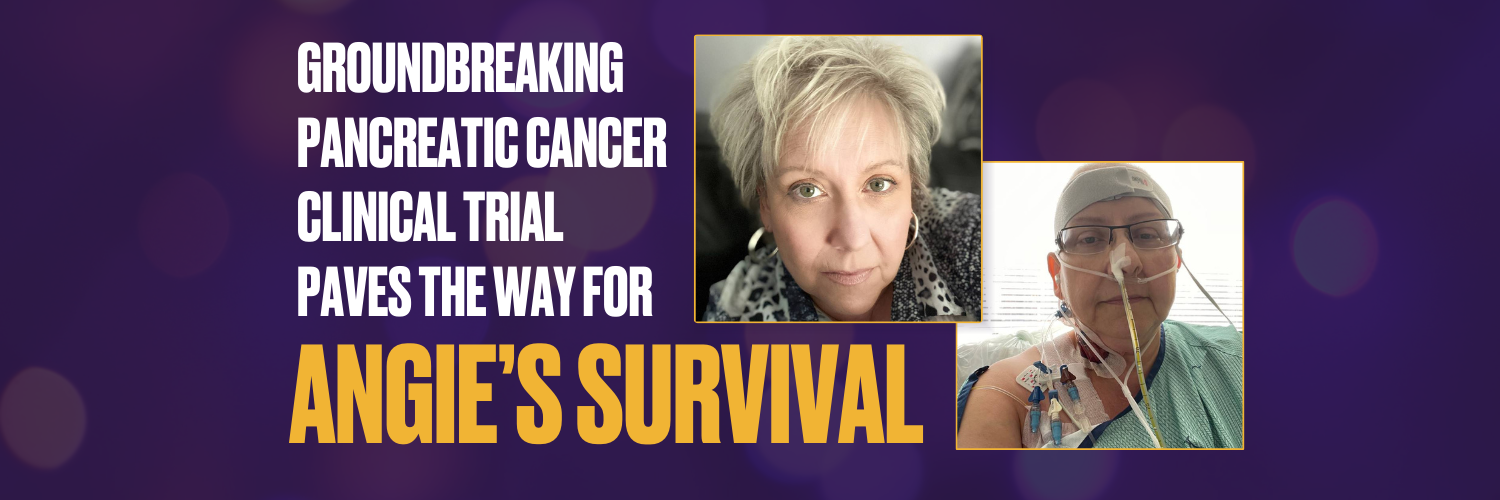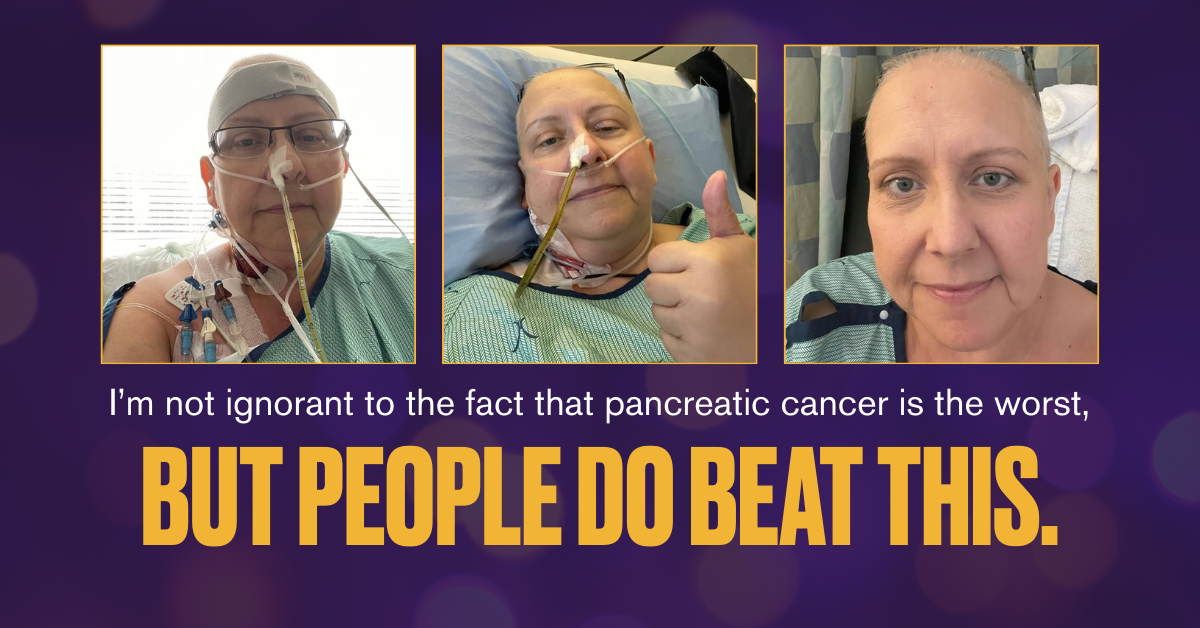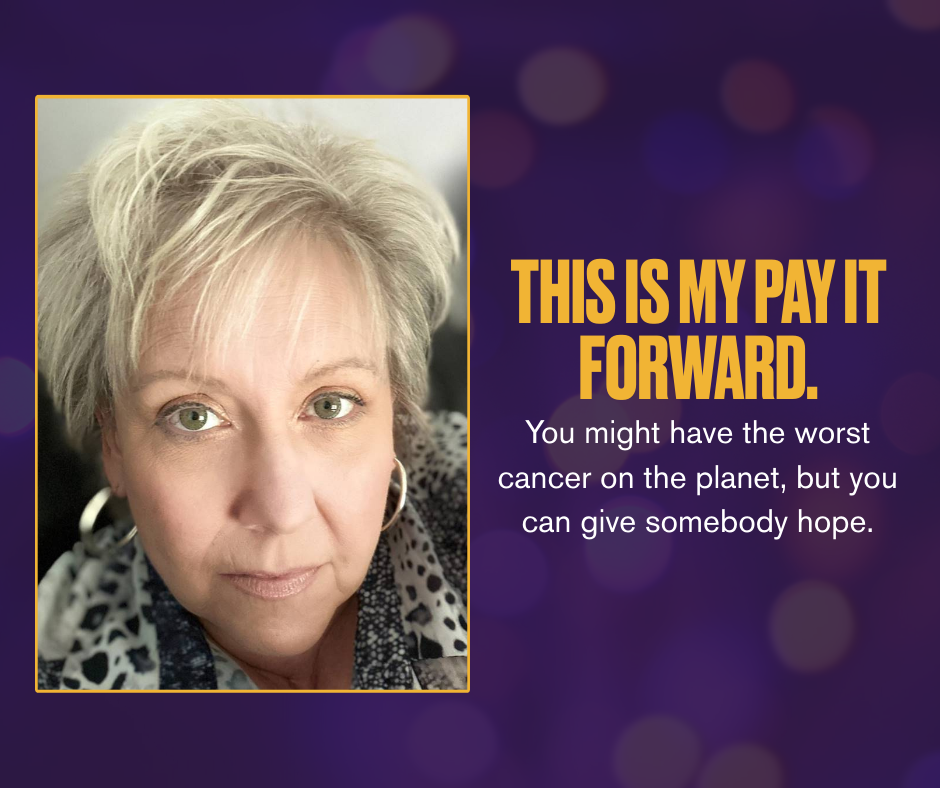
Diagnosed with type II diabetes more than 20 years ago, Angie Lachocki has tried to focus on her health.
In October 2022, she visited her family doctor for a routine annual check up. Her doctor did some bloodwork and noted that her A1C levels were creeping up, so she adjusted her medication. Two months passed and things were not improving so her file was referred to an endocrinologist for further follow-up.
A CT scan was ordered by the endocrinologist and by March 2023, things took an unexpected turn. The scan revealed a small mass in the center of her pancreas. Her doctor got her a rapid referral to the Princess Margaret Hospital Pancreatic Cancer Clinic where a week later she met with her oncology team for the first time.
At that first meeting, a resident delivered the news no one is ever ready for – he told Angie that she likely had just 18 months to live. While she understood that he was trying to help her to be realistic, Angie made the decision to prove him wrong. “I’m not ignorant to the fact that pancreatic cancer is the worst, but people do beat this.”

Angie’s positive attitude and determination set the tone from day one. After a number of additional tests, her medical oncologist, Dr. Raymond Jang, and surgical oncologist, Dr. Stephen Gallinger, told her that she was a good candidate for the NeoPancONE phase II clinical trial, funded by Pancreatic Cancer Canada.
This trailblazing clinical trial took a new approach to treatment by giving chemotherapy to patients before and after surgery. This is an approach that has been taken in other cancers but not yet in pancreatic cancer. NeoPancONE was the first to use this treatment plan in consideration of a potential biomarker with the goal of learning more about how patients responded based on their subtype, helping them get the right treatment at the right time.
What that meant for Angie was that her treatment protocol included six rounds of chemotherapy, followed by a distal pancreatectomy and splenectomy surgery (performed UHN’s Dr. Carol-Anne Moulton), and then another six rounds of chemotherapy after surgery.
It was grueling protocol but one that Angie tackled like it was her job. “I’m very project oriented,” explains Angie. “I treated this as the worst project that I’ve been a part of.” My medical team would say “You’re a rockstar. And I’d tell them no, you guys are the rockstars. I consider myself a roadie.”

Throughout the months of treatment, Angie tackled both the mental and physical challenges with strength and determination. When her hair started falling out in clumps, she took matters into her own hands and decided to shave her head. “This was one thing I could feel in control of.” She also continued to work throughout her treatment, holding on to a sense of purpose and normalcy.
In February 2024, Angie completed the treatment protocol. While she continues to monitor her health closely and manage her diabetes, she feels an overwhelming sense of gratitude to be alive and to be able to share her experience with others.
“This is my pay it forward,” explains Angie. “You might have the worst cancer on the planet, but you can give somebody hope. I don’t know what my legacy is going to be, but from a research perspective, if my participation in this trial can help just one person, it was worth it.”

Recent Comments